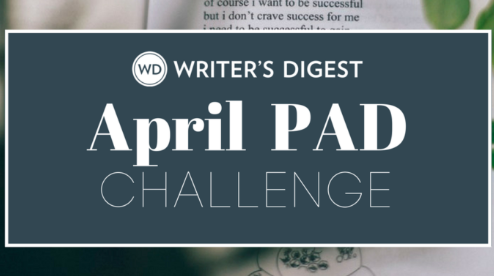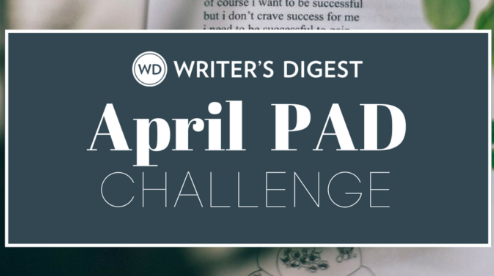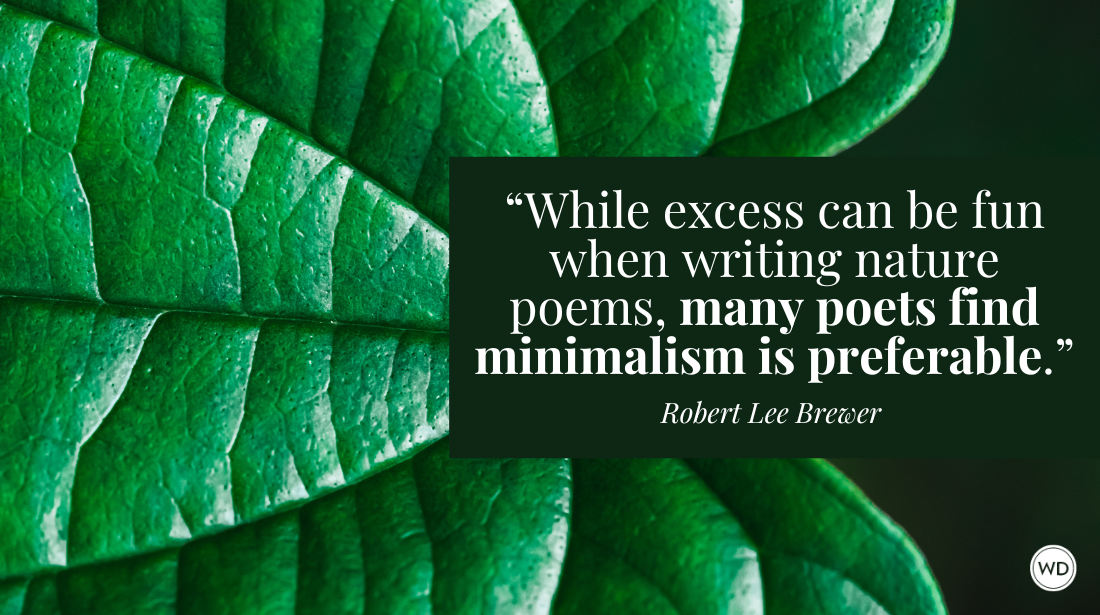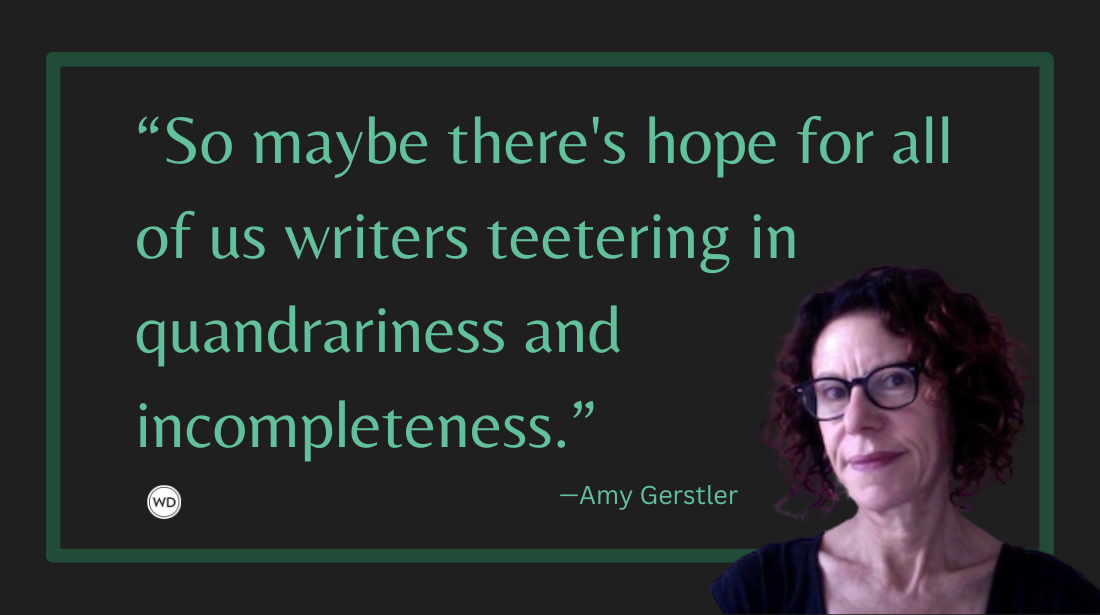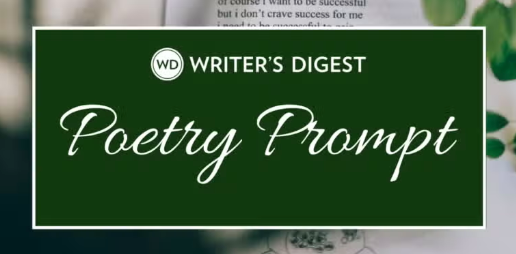Interview With Poet Erika Meitner
Earlier this year, Harper Perennial released Erika Meitner’s Ideal Cities, which has already received praise from poets such as Paul Guest, Nikki Giovanni and Denise Duhamel. And you can go…
Earlier this year, Harper Perennial released Erika Meitner's Ideal
Cities, which has already received praise from poets such as Paul
Guest, Nikki Giovanni and Denise Duhamel. And you can go ahead and
throw me on the bandwagon too, because I really enjoyed the way Ideal
Cities dealt with both location and family.
In addition to Ideal Cities, Meitner is the author of Inventory at the
All-night Drugstore (winner of the 2002 Anhinga Prize for Poetry). Her
poems have been anthologized widely and have appeared in publications,
including The New Republic, Virginia Quarterly Review, and on
Slate.com. She is an assistant professor of English at Virginia Tech,
and is also completing her doctorate in religious studies at the
University of Virginia.
Here is one of my favorite poems from Ideal Cities:
1944, by Erika Meitner
My grandmother made
holes in hand grenades
to leave Bergen-Belsen
each dark night shift--
burnt-out bulbs beneath
the canopy of forest,
bare-shouldered trees
like the thinnest trip-wires,
the name of the unnamed
over and over, hollow
bones scraping the space
nothing could reach.
What would you place
in her outstretched hands?
*****
What are you currently up to?
At this moment I'm sitting at my dining room table, surrounded by piles
of unopened junk mail, desperately hoping my son doesn't start yelling
"mama! Mama! MaMa! MAMA! I have to poop!" so I can finish typing out
the answers to your fantastic questions. He's totally potty trained
except when it comes to pooping--he asks for a diaper, I oblige, he
poops in it, I change him. He's three and a half years old, and I'm
hoping we don't have to send him to college in Depends.
If you mean what I'm currently up to poetry-wise, I've been traveling
around a lot to do readings from Ideal Cities. I've been to Indiana,
various parts of Ohio and Virginia, and New York so far this fall, and
I'm headed to Mississippi next week, and multiple parts of North
Carolina the week after that [check out Meitner's reading schedule]. I'm also teaching an undergraduate poetry workshop, and a literary editing class. Virginia Tech just inherited The Minnesota Review, so my MFA students
have been selecting the poetry and fiction for the next issue. (We
realize, incidentally, that we're not in Minnesota, but the name came
with it.) It's been hard to get a substantial amount of writing done
with so much on-the-road time this semester, but I'm chipping away at
two poetic projects slowly--one involves writing poems that all include
Walmart in some way; the other is a project that has to do with writing
documentary poems about Detroit. My fourth manuscript, tentatively
titled Copia (after Brian Ulrich's series of photos of ghost box stores and dead malls), has to do with consumerism, place, and memory.
In Ideal Cities, there are quite a few poems dealing with location.
In fact, the book is divided into two sections: Rental Towns and Ideal
Cities. Have you traveled a lot? And depending on your answer, how have
your experiences helped shape your sense of location in your poems?
I don't know that I've traveled a lot compared to other friends that I
have who are real globetrotters, but I've definitely moved a lot. Being
in academia is like being in the domestic foreign service. From the
year I graduated college (1996) through 2007, when I got my job at
Virginia Tech, I've moved every single year. I've lived in New
Hampshire, Jerusalem, Brooklyn, Charlottesville (VA), Santa Cruz (CA),
Wisconsin, Washington, DC, and now I live in Blacksburg, which is rural
Appalachian Virginia, close to the West Virginia border. I boomeranged
quite a bit, back and forth from Charlottesville, as I kept getting
one-year fellowships and jobs, and then would head back to my PhD
program in Religious Studies at UVA, so many of the poems in Ideal
Cities deal with that cyclical shiftiness and homecoming.
I do think I try to write my way back home a lot through my poems, but
moving a lot also makes me a bit of an outsider wherever I go, and
heightens my observational abilities. I'm always sort of
anthropological about my surroundings, and I feel like I'm very
adaptable because of that. I find every place I've lived fascinating in
its own way. Here, when you call your doctor to make an appointment,
and you tell him what's wrong, the receptionist will always unfailingly
say, "Bless your heart." They also have bibles in all the doctors'
waiting rooms here. I think both these things are strange and amazing,
since I'm a Jew from New York. Details like that are what provide a
sense of place, a texture of place, in poems, and why would you ever
notice them if they're commonplace and not weird to you?
Many other poems I love from Ideal Cities deal with pregnancy and
motherhood. How do you go about writing sincere parenting poems that
don't dissolve into abstractions or sentimentality?
I think the first reason the poems aren't sentimental is that in order
to be sentimental about an experience, you need distance from it. I
wrote Ideal Cities while I was in the middle of what, in retrospect,
was the most difficult phase of parenting so far for me (and my
husband)--early babyhood. I wasn't sleeping, our kid was sick a lot, he
cried a lot, he had tones of trouble nursing, and we had no family near
us as backup caregivers. I was also quite ill with an infection that I
picked up in the hospital, which hung on for over a year, and made
everything twice as hard as it might have been otherwise. And I was
negotiating for my job at Virginia Tech while I was in labor
(literally), and then started this big new job when my son was four
months old. Those first months were often hellish, because of the
convergence of parenthood, radical change, and illness. I think the
poems in the book reflect some of that hardship, ambivalence, fear, and
loneliness, which undercut the preciousness of that experience of
first-time parenthood for me.
In my poems, I've also been working for a long time with what I've
slap-dashedly nicknamed 'the resistant ending.' Many of my poems are
narrative-ish, and there aren't really that many ways to end a
narrative poem. I'm partial to poetry that resists the 'transcendent'
ending--where everything breaks into light and all is redeemed at the
end of the poem. (In my head I call this the "fruit and light" ending
after Louise Gluck's poem "Winter Morning"--"And suddenly it is summer,
all puzzling fruit and light.") Joel Brouwer does resistant endings.
Carrie Fountain, in her new book Burn Lake does resistant endings. Mark
Doty's amazing book, My Alexandria, uses transcendent endings to great
effect, but those endings are balanced out by the subject material he
tackles in there: homelessness, AIDS, urban blight, poverty. If I tried
to put a transcendent ending on a parenting poem, I'd risk moving into
cloying or sentimental territory.
I think, with parenting, as with other life experiences that I write
about, I'm more into realism. Rather than raising the reader or the
subject material up in a poem via transcendent language, I instead ask
the reader to look at the things depicted in the poem closely, to make
their own connections between accumulated images and statements. It's
sort of the Bishop vs. Whitman schools of contemporary American
poetry--Bishop blesses things just by bestowing attention on them,
whereas Whitman uses a lot of elevated rhetoric and flourishes to get
to a similar place of praise. I fall into the 'look closely' category,
but I don't have the patience of Bishop--I move through my subject
material much faster. If the poems in Ideal Cities were an event, they
would be those contests people win where they get to go into a store
for five minutes and toss anything they can into their shopping carts.
There's a lot of stuff in my cart, but it all has a pattern--a reason I
put it in there; I'm just usually not going to tell you what that
reason is outright.
Do you have a favorite poetic form?
I love sestinas! They have the potential to be such a wickedly funny
form, and the repetition lends itself to everyday speech. Some of my
favorites are Denise Duhamel's "On Delta Flight 659 with Sean Penn,"
and Catherine Bowman's "Mr. X." The McSweeney's archives, from back
when Dan Nester was editing their all-sestina poetry section, have some
really imaginative ones: http://www.mcsweeneys.net/links/sestinas.
Canzones are also amazing--like sestinas on crack. Sean Thomas
Dougherty writes fantastic canzones, as does Paisley Rekdal.
In your acknowledgments, you give shout outs to Blue Mountain Center
and the Virginia Center for the Creative Arts. Could you explain how
these centers assisted in the completion of Ideal Cities?
I spent a month at Blue Mountain Center
when I was about five months pregnant, and a few of the very early
seeds of Ideal Cities got started there. They had assigned me to a room
in a little house there, and the woman who had the studio next to me on
one side was the musician Basya Schecter, from the band Pharaoh's Daughter,
and she was working on a project where she was setting Abraham Joshua
Heschel's Yiddish poetry to music. An entire super-long lyric poem from
Ideal Cities called (shockingly) "Pharaoh's Daughter" comes from my
interactions and late-night conversations with Basya. Also, I'd take
these epic walks in the woods while I was there, and those led to
"North Country Canzone." VCCA
is the closest artist colony to my house, and they've been wonderful in
letting me have really short week-long residencies that could use to
work on the book in various ways. Now that I have a kid, it's hard on
him if I'm gone longer than a week. I've been going to VCCA on and off
from the last ten years, and it's the only place where I can tack up an
entire book manuscript on the walls of a studio and really dig in to a
project as a whole. I can write individual poems at home, but clearing
out the head-space and physical space to put together an entire
manuscript is something I feel like I can only do at a colony.
In your acknowledgments, you also mention your virtual NaPoWriMo
group, which includes poets Sandra Beasley, Mary Biddinger, Oliver de
la Paz and Aimee Nezhukumatathil. Could you explain how you connected
with these poets and how you group virtually workshops poems?
We actually don't workshop poems at all--we just write them at the same
time, then post them online for a form of group accountability! The
group started because Sandra Beasley spearheaded a movement to get
together a group of poets (this was back in August of 2007, when I had
just moved to Blacksburg) to do a NaPoWriMo together virtually. The NaPoWriMo idea originally came from Maureen Thorson
as a creative response to National Poetry Month in April--poets would
gather virtually, and write a poem a day for the month of April. But
Sandra decided to gather a bunch of us together and implement it in
August, which was the busiest month I could possibly imagine--I had
just moved, I was starting a new job, I was sick, I had a new baby. But
I decided that even if I got a little writing done, it would prove that
I could write through anything. I mostly wrote late at night--I would
start at 11 p.m. or midnight, and then wait up until my son woke up for
his night feeding. And I wrote most of Ideal Cities through various
NaPoWriMo sessions; I really needed that indirect push from the more
faithful members of the group. Oliver's a poetry machine! We still keep
meeting two or three times a year, sometimes for a month, and sometimes
for shorter two-week stints, where we all try to produce a poem a day,
sometimes with prompts and sometimes without. And the membership
fluctuates too--usually we have others that come on for a session, and
then drop off.
I think of those poets, the first one I met was Aimee,
back in 2001-ish. I went to visit Madison, Wisconsin, to
apartment-hunt--I had just found out I had won the Diane Middlebrook
Poetry Fellowship from the Wisconsin Institute for Creative
Writing--and I ended up having dinner with a bunch of the current
fellows that year, and Aimee was among them. Something about our shared
love of Hello Kitty, and the fact that we both had new books out around
the same time and were Wisconsin Fellowship alums drew us together, and
kept us connected throughout the years. It's great to have someone who,
at certain points, has a similar career trajectory to you, but is a
little ahead of you too, I think. Aimee was always an invaluable
resource for publishing and fellowship and colony advice for me, and
just such a source of sunniness and light. I met Oliver and Mary
via Aimee--and actually, I had been in the virtual writing group with
both of them for a few years before I met either of them in person. And
Sandra and I connected when I moved to DC in 2006. I had known her in
passing when she was an undergraduate at UVA, but when I moved to DC,
we became friends in person, as the poetry community in DC is quite
close-knit.
You're currently an Assistant Professor of English at Virginia Tech,
but you've previously worked as a dating columnist, a Hebrew school
instructor, a computer consultant, a lifeguard, a documentary film
production assistant, and a middle school teacher in the New York City
public school system. Of all your previous jobs, which one did you
enjoy the most and why?
I loved working on documentary films, and I feel, really, like my poems
are an extension of that early interest in telling true stories, and
being aware of the interplay of image and sound. I worked for a tiny
documentary film production company while I was still in college, and
right after I graduated (called Tatge-Lasseur Productions),
that did a lot of contract work for PBS and the American Masters
series. This meant that for the most part, I got to watch master
artists at work, which was pretty life-changing. I was a production
assistant on so many different gigs--I watched ballerinas like Maria
Tallchief and Merrill Ashley recreate all of George Balanchine's dances
for his archives; I worked on the film version of Bill T. Jones'
Still/Here; I sat in on the taping of Bill Moyers' Book of Genesis
series, which was actually one of the reasons I went back to graduate
school in religion. I researched a program for FR3 (French public
broadcasting) on Philip Roth, so I had to read all of his collected
works. And I can still tell you how much it cost in 1994 to move a
Jimmy Jib (giant camera crane) from Arizona to NYC.
Following up on the varied occupations, do you feel having a diverse job history has passed on any benefits for your writing?
I definitely think that my diverse
job history has made me more functional as both a writer, and a human being in
general. My job as a computer consultant meant that I could support myself
financially through my MFA program without going into debt. We got funding at
UVA, but at that time, in the late 90's, it wasn't very much. Our first year it
was about $4,000 above tuition. I also designed and still maintain my own
website
with the skills I learned at Andersen Consulting (now Accenture). Being
a New York City public school teacher (and a Hebrew school teacher)
gave me a thick skin--something that was critical for me when I started
in MFA workshops, and also began to send my work out to publish. My
work in film also taught me not to take no for an answer--if that crane
had to get to New York, we would find a way to do it. Being a poet most
of the time seems like a similar feat of not taking no for an answer. I
mean, what a ludicrous career path, to be a poet! I always think of
this Nike ad that I had tacked to my wall in college: "All your life
they will tell you no, quite firmly and very quickly. AND YOU WILL TELL
THEM YES."
Who (or what) are you currently
reading?
Right now I'm reading a few
different things: I'm right in the middle of The Origins of the Urban Crisis:
Race and Inequality in Postwar Detroit,
by Thomas Sugrue, as part of the research for the Detroit project I'm
working on. I'm also an avid reader of The New Yorker, and I take great
pride in being up-to-date on each issue (so that I don't get the
dreaded 'New Yorker guilt' when the issues pile up). I'm generally
working my way too, at any given time, through multiple books of poems,
reading and re-reading. Right now, I have Sarah Vap's newest,
Faulkner's Rosary, on my bedside table, piled up along with Julie
Carr's 100 Notes on Violence, Claudia Rankine's Don't Let Me be Lonely
(a re-read), and the manuscript for a new book due out in the spring
from Persea that I'm reading to blurb--Sightseer, by Cynthia Marie
Hoffman, which is snappy and excellent. With poetry books, I tend to
pick them up and put them down a lot, and read three or four at once.
If you could pass on only one piece of advice to fellow poets, what would it be?
Go live abroad, travel around the US too,
road-trip and fall in love, work weird and mundane jobs--live a little,
and grow a thick skin, and collect your images and snippets and bring
them with you wherever you land. And most of all, don't edit out the
ugly.
*****
Check out Erika's website here: www.erikameitner.com
Check out her publisher's website here: www.harperperennial.com
*****
Follow me on Twitter @robertleebrewer
*****
Get metrical!
Learn how to write metrical poetry with William Baer's Writing Metrical
Poetry. This book helps make writing in meter easier to learn by
providing step-by-step instruction and great examples.
Robert Lee Brewer is Senior Editor of Writer's Digest, which includes managing the content on WritersDigest.com and programming virtual conferences. He's the author of 40 Plot Twist Prompts for Writers: Writing Ideas for Bending Stories in New Directions, The Complete Guide of Poetic Forms: 100+ Poetic Form Definitions and Examples for Poets, Poem-a-Day: 365 Poetry Writing Prompts for a Year of Poeming, and more. Also, he's the editor of Writer's Market, Poet's Market, and Guide to Literary Agents. Follow him on Twitter @robertleebrewer.

